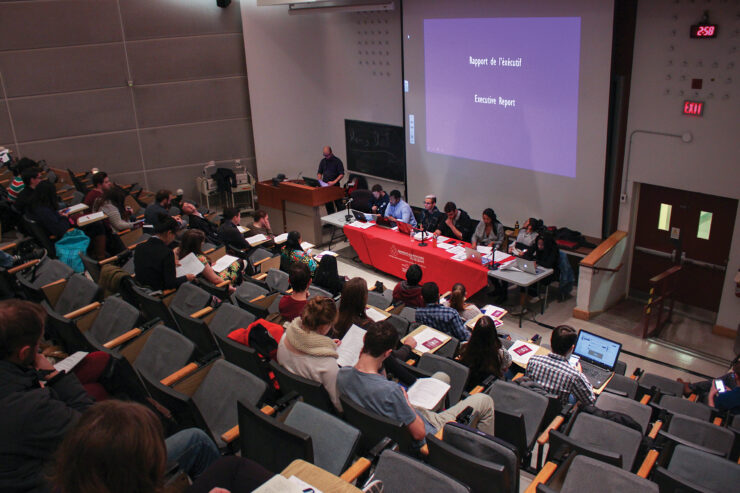If you want to foster engagement, make sure students get a voice every time
After the Student Federation of the University of Ottawa’s (SFUO) latest General Assembly (GA) failed to meet quorum for a fifth consecutive time, it’s time to look at ways to make changes so that these events can succeed in the future.
One of the motions presented at the GA suggested lowering quorum at future events, so that they could succeed even if a smaller amount of students show up. But is this really a good idea?
When it comes to student governance at the U of O, we’ve had a serious problem with student engagement. Many don’t keep up with student politics, and even fewer participate. Levels of student voting have been dropping slowly and have become shockingly low, with each candidate receiving fewer than 100 votes in the recent fall by-election.
The GA is a potential remedy for this, but only if enough people show up. The ability for any student to bring motions and see them voted on to actually change the SFUO mandate, even a little bit, is a powerful enough reason to participate.
The problem is, since the GAs have never succeeded, there are no examples to point to that could get students excited about the event. Being able to say something like “at last year’s GA, students implemented policies to establish a student court and make voting easier,” would go a long way in motivating people.
With this in mind, lowering quorum could significantly raise the chance of such success stories happening, which would create a positive feedback loop.
Of course, lowering quorum is not a perfect solution. Quorum is already relatively low for GAs—one per cent of the student body, or around 325 people. Lowering this number would mean that an even smaller number of students could control the fate of the entire student population, which is far from ideal.
However, there are two reasons that lowering quorum is a good idea despite this fact.
Firstly, while it would lower the floor, it would not lower the ceiling, meaning that the potential number of students who can show up to the event is just as high as ever.
Secondly, if you don’t like the idea that a small number of people could control policy for all students, then you should really want quorum to be lowered. Because if quorum is set too high, then no students get to vote on new policies, and it all falls on the 30-member Board of Administration (BOA).
I know what you’re thinking, the BOA was democratically elected, so this isn’t a huge issue. But how many people were involved in this selection process? One newly elected representative received all of 10 “yes” votes to three “no” votes running against no opposition. And how educated were those voters? Many candidates didn’t have available platforms posted, and there were no debates. In essence, very little vetting was done by the student body before electing them.
In such a situation, there is no guarantee that a BOA member will be better better suited to direct policy than your average student. In such a case, you want as many people involved as possible to maximize the chance of success.
It becomes more and more important that a greater number of students be given an effective voice—that means being able to vote on policy—and not just a passive role every year.





